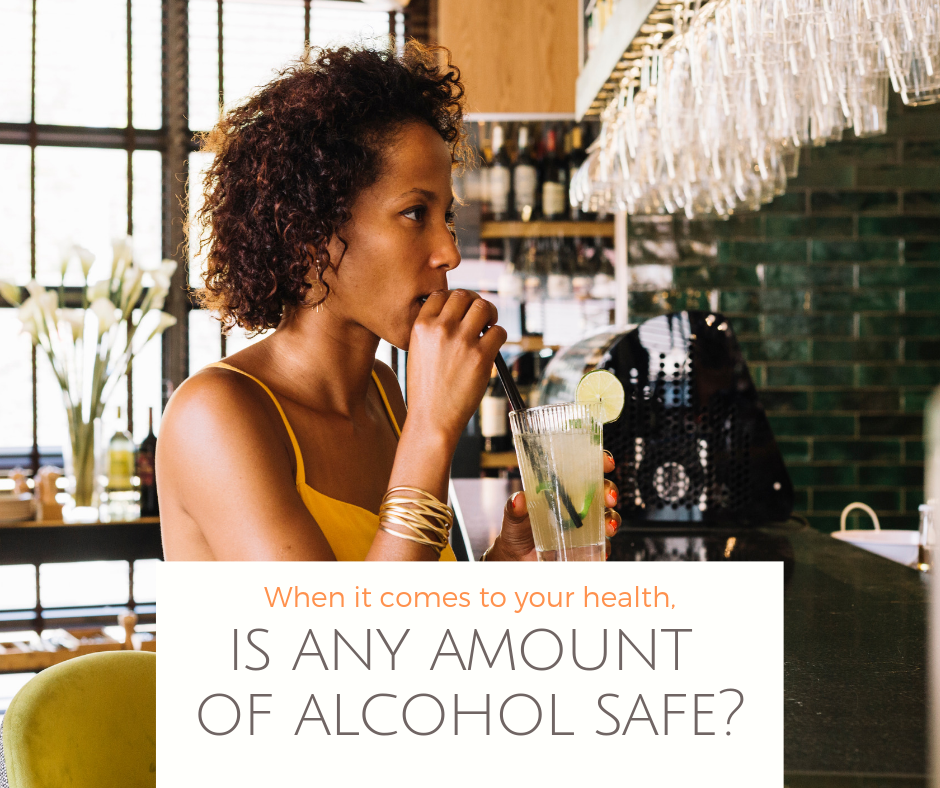Alcohol: Is it healthy in small doses?
A glass of wine with dinner. A beer after a hard day at work. It’s not hard to integrate an occasional drink with a healthy lifestyle…is it?
In recent years, we’ve read that red wine is rich with antioxidants, and that an occasional beer can raise “good” cholesterol. But results from a new study suggest that even moderate alcohol consumption – the kind we tell ourselves is healthy – may actually be detrimental. In other words, all those health benefits you’ve been hearing about still don’t outweigh the risks of alcohol consumption. Which means there really is no safe level.
A recently published report looks at data gathered from almost 700 studies, spanning 195 countries and territories. Some of the findings are shocking:
● Alcohol is the leading risk factor for death in those aged 15 through 49.
● Alcohol use was responsible for 2.8 million deaths worldwide in 2016.
● For women in particular, the health risks of drinking increase with age. Alcohol was responsible for over 27 percent of cancer deaths in women over 50.
The authors of the study are firm in their conclusion: “By evaluating all associated relative risks for alcohol use, we found that consuming zero standard drinks daily minimizes the overall risk to health.”
In other words, the only safe amount of drinks is none at all. This finding differs from many earlier studies, which often concluded that moderate drinking was the best approach.
Why did this study reach a more decisive conclusion than previous examinations of alcohol’s effect on health? Several factors are at play. This study was careful to consider the ways they measured consumption. For example, researchers looked at regional variations in alcohol consumption that could be attributed to things like tourism. In addition, the study looked at alcohol’s impact on 23 different health-related problems. For some of those problems (such as heart disease), mild alcohol consumption had a positive effect. But that positive effect was balanced by a greater negative impact on other health issues (cancer is a strong example).
So what does this mean? If you drink, should you stop? Alcohol consumption is a very personal decision. This study looked at the picture, worldwide. It was not studying individuals, but rather analyzing vast amounts of data previously collected, specifically looking at the risks for the 23 health issues. That data was conclusive. But how you apply it to your own life is up to you. This latest study can’t, for example, tell you what impact a glass of wine at New Year’s will have on you with your own unique genetics and lifestyle.
One thing is certain: If you’ve told yourself that drinking is healthy, you may want to reconsider that rationale. That doesn’t necessarily mean you have to stop right this moment. However in deciding whether or not alcohol is something you want in your life, it’s best to be realistic about the health risks.

If you’re wondering about alcohol, talk to a healthcare practitioner. And be upfront about your drinking during the visit. Many people underreport how much they drink, but it’s best to be honest. You want to have an open and fruitful discussion about all of your health concerns. Remember that healthcare providers aren’t looking to judge you: they want to work with you to create your best life.
You also want to look at your own medical history and perhaps check out more specific studies. For example, another recently published study concluded that alcohol is the biggest controllable risk factor for dementia. If you have other dementia risk factors that are out of your control, such as a genetic history, you may want take action on the things you are under your control.
Similarly, if you have a history of depression, consider alcohol’s impact on mental health. If you are trying to control your weight, the extra calories of alcohol aren’t going to help. Alcohol can also lower your judgment and keep you from making your best decisions.
Some patients express frustration at the different results they see in various health studies: One minute something is good for you, the next, it’s something we’re told to avoid altogether! Studies on alcohol use can be proof that when we read an eye-catching health-related headline, we need to look beyond the numbers.
One thing to keep in mind is that the media will typically seize the most dramatic sound bite, although it’s impossible to always convey the nuances of a well-run scientific study in a short headline. For example, a news story doesn’t always mention who funded the study. For the record, the Lancet study on alcohol safety was funded by the Bill and Melinda Gates Foundation, while some others that emphasized alcohol’s benefits were funded by companies who sell alcohol. That doesn’t necessarily mean the studies are false, but we should all remember the funders have a vested interest in how the results are positioned and presented.
As well, correlation doesn’t always equal causation. That’s sometimes hard to capture in reporting large studies. In fact there are studies that show that Resveratrol, an antioxidant found in red wine, is beneficial to your health however if you have other health issues like, poor gut function, low energy, or sleep issues, alcohol will likely have negative impacts and could make your health issues worse.
Whenever you’re confused about a health issue, the best approach is to consider it from a sample study of one: yourself. That means talking to a healthcare provider about your own personal history and choices and your current health concerns. We can help you sort through all of the information and competing arguments out there and figure out what’s best for your unique body – in fact, we do just that! Give our office a call, we are here to help 519-954-7950.
Sources:
https://www.thelancet.com/journals/lanpub/article/PIIS2468-2667(18)30022-7/fulltext
https://www.ncbi.nlm.nih.gov/pmc/articles/PMC2874911/
https://www.thelancet.com/journals/lancet/article/PIIS0140-6736(18)31310-2/fulltext


